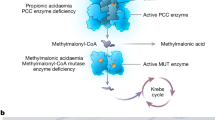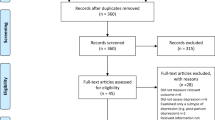Abstract
The degree of agreement between four commercial pharmacogenetic-based decision support tools (DSTs) was examined in five outpatients with major depressive disorder and at least two previous antidepressant failures. Comparisons were made across seven pharmacokinetic (CYP1A2, CYP2B6, CYP2C19, CYP2C9, CYP2D6, CYP3A4, and UGT2B15) and seven pharmacodynamic (BDNF, COMT, HLA-A, HTR2A, HTR2C, OPRM1, and SLC6A4) genes that were included on ≥2 of the four DST testing panels. Among these overlapping genes, genotype (33–100%) and predicted phenotype (20–100%) agreement varied substantially. Medication recommendation agreement was the greatest for mood stabilizers (84%), followed by antidepressants (56%), anxiolytics/hypnotics (56%), and antipsychotics (55%). Approximately one-quarter (26%) of all medication recommendations were jointly flagged by two or more DSTs as “actionable” but 19% of these recommendations provided conflicting advice (e.g., dosing) for the same medication.
The level of disagreement in medication recommendations across the pharmacogenetic DSTs indicates that these tests cannot be assumed to be equivalent or interchangeable. Additional efforts to standardize genetic-based phenotyping and to develop medication guidelines are warranted.
This is a preview of subscription content, access via your institution
Access options
Subscribe to this journal
Receive 6 print issues and online access
$259.00 per year
only $43.17 per issue
Buy this article
- Purchase on Springer Link
- Instant access to full article PDF
Prices may be subject to local taxes which are calculated during checkout


Similar content being viewed by others
References
Undurraga J, Baldessarini RJ. Randomized, placebo-controlled trials of antidepressants for acute major depression: thirty-year meta-analytic review. Neuropsychopharmacology. 2012;37:851–64.
Papakostas GI, Fava M, Thase ME. Treatment of SSRI-resistant depression: a meta-analysis comparing within- versus across-class switches. Biol Psychiatry. 2008;63:699–704.
Zhou X, Ravindran AV, Qin B, Del Giovane C, Li Q, Bauer M, et al. Comparative efficacy, acceptability, and tolerability of augmentation agents in treatment-resistant depression: systematic review and network meta-analysis. J Clin Psychiatry. 2015;76:e487–98.
Dunlop BW. Prediction of treatment outcomes in major depressive disorder. Expert Rev Clin Pharmacol. 2015;8:669–72.
Fabbri C, Porcelli S, Serretti A. From pharmacogenetics to pharmacogenomics: the way toward the personalization of antidepressant treatment. Can J Psychiatry. 2014;59:62–75.
Reynolds GP, McGowan OO, Dalton CF. Pharmacogenomics in psychiatry: the relevance of receptor and transporter polymorphisms. Br J Clin Pharmacol. 2014;77:654–72.
Conrado DJ, Rogers HL, Zineh I, Pacanowski MA. Consistency of drug–drug and gene–drug interaction information in US FDA-approved drug labels. Pharmacogenomics. 2013;14:215–23.
Tansey KE, Guipponi M, Hu X, Domenici E, Lewis G, Malafosse A, et al. Contribution of common genetic variants to antidepressant response. Biol Psychiatry. 2013;73:679–82.
Hicks JK, Bishop JR, Sangkuhl K, Muller DJ, Ji Y, Leckband SG, et al. Clinical Pharmacogenetics Implementation Consortium (CPIC) guideline for CYP2D6 and CYP2C19 genotypes and dosing of selective serotonin reuptake inhibitors. Clin Pharmacol Ther. 2015;98:127–34.
Hicks JK, Sangkuhl K, Swen JJ, Ellingrod VL, Muller DJ, Shimoda K, et al. Clinical Pharmacogenetics Implementation Consortium (CPIC) guideline for CYP2D6 and CYP2C19 genotypes and dosing of tricyclic antidepressants: 2016 update. Clin Pharmacol Ther. 2017;102:37–44.
Leckband SG, Kelsoe JR, Dunnenberger HM, George AL, Tran E, Berger R, et al. Clinical pharmacogenetics implementation consortium guidelines for HLA-B genotype and carbamazepine dosing. Clin Pharmacol Ther. 2013;94:324–8.
Padmanabhan S. Handbook of pharmacogenomics and stratified medicines. Cambridge, MA: Academic Press; 2014.
Amstutz U, Shear NH, Rieder MJ, Hwang S, Fung V, Nakamura H, et al. Recommendations for HLA-B*15:02 and HLA-A*31:01 genetic testing to reduce the risk of carbamazepine-induced hypersensitivity reactions. Epilepsia. 2014;55:496–506.
Bousman CA, Hopwood M. Commercial pharmacogenetic-based decision-support tools in psychiatry. Lancet Psychiatry. 2016;3:585–90.
Singh AB. Improved antidepressant remission in major depression via a pharmacokinetic pathway polygene pharmacogenetic report. Clin Psychopharmacol Neurosci. 2015;13:150–6.
Winner JG, Carhart JM, Altar CA, Allen JD, Dechairo BM. A prospective, randomized, double-blind study assessing the clinical impact of integrated pharmacogenomic testing for major depressive disorder. Discov Med. 2013;16:219–27.
Perez V, Salavert A, Espadaler J, Tuson M, Saiz-Ruiz J, Saez-Navarro C, et al. Efficacy of prospective pharmacogenetic testing in the treatment of major depressive disorder: results of a randomized, double-blind clinical trial. BMC Psychiatry. 2017;17:250.
Brennan FX, Gardner KR, Lombard J, Perlis RH, Fava M, Harris HW, et al. A naturalistic study of the effectiveness of pharmacogenetic testing to guide treatment in psychiatric patients with mood and anxiety disorders. Prim Care Companion CNS Disord. 2015;17:73–9.
Hall-Flavin DK, Winner JG, Allen JD, Carhart JM, Proctor B, Snyder KA, et al. Utility of integrated pharmacogenomic testing to support the treatment of major depressive disorder in a psychiatric outpatient setting. Pharmacogenet Genom. 2013;23:535–48.
Hall-Flavin DK, Winner JG, Allen JD, Jordan JJ, Nesheim RS, Snyder KA, et al. Using a pharmacogenomic algorithm to guide the treatment of depression. Transl Psychiatry. 2012;2:e172.
Bousman CA, Muller DJ, Ng CH, Byron K, Berk M, Singh AB. Concordance between actual and pharmacogenetic predicted desvenlafaxine dose needed to achieve remission in major depressive disorder: a 10-week open-label study. Pharmacogenet Genom. 2017;27:1–6.
Brown LC, Lorenz RA, Li J, Dechairo BM. Economic utility: combinatorial pharmacogenomics and medication cost savings for mental health care in a primary care setting. Clin Ther. 2017;39:592–602.
Espadaler J, Tuson M, Lopez-Ibor JM, Lopez-Ibor F, Lopez-Ibor MI. Pharmacogenetic testing for the guidance of psychiatric treatment: a multicenter retrospective analysis. CNS Spectr. 2017;22:315–24.
Fagerness J, Fonseca E, Hess GP, Scott R, Gardner KR, Koffler M, et al. Pharmacogenetic-guided psychiatric intervention associated with increased adherence and cost savings. Am J Manag Care. 2014;20:e146–56.
Winner J, Allen JD, Altar CA, Spahic-Mihajlovic A. Psychiatric pharmacogenomics predicts health resource utilization of outpatients with anxiety and depression. Transl Psychiatry. 2013;3:e242.
Winner JG, Dechairo B. Combinatorial versus individual gene pharmacogenomic testing in mental health: a perspective on context and implications on clinical utility. Yale J Biol Med. 2015;88:375–82.
Winner JG, Carhart JM, Altar CA, Goldfarb S, Allen JD, Lavezzari G, et al. Combinatorial pharmacogenomic guidance for psychiatric medications reduces overall pharmacy costs in a 1 year prospective evaluation. Curr Med Res Opin. 2015;31:1633–43.
Cohen J. A coefficient of agreement for nominal scales. Educ Psychol Meas. 1960;20:37–46.
Umesh UN, Peterson RA, Sauber MH. Interjudge agreement and the maximum value of kappa. Educ Psychol Meas. 1989;49:835–50.
McHugh ML. Interrater reliability: the kappa statistic. Biochem Med. 2012;22:276–82.
Kraft JB, Slager SL, McGrath PJ, Hamilton SP. Sequence analysis of the serotonin transporter and associations with antidepressant response. Biol Psychiatry. 2005;58:374–81.
Huezo-Diaz P, Uher R, Smith R, Rietschel M, Henigsberg N, Marusic A, et al. Moderation of antidepressant response by the serotonin transporter gene. Br J Psychiatry. 2009;195:30–8.
Poolsup N, Li Wan Po A, Knight TL. Pharmacogenetics and psychopharmacotherapy. J Clin Pharm Ther. 2000;25:197–220.
Acknowledgments
This research received no specific grant from any funding agency in the public, commercial, or not-for-profit sectors. AB Biotics, Assurex Health, Baycrest Biotechnology, and Genomind donated their testing kits, as well as their standard report generation and interpretation services for the purposes of this study. These donations amounted to a total of five tests per company. These companies had no role in the design of the study or the analysis of the study results. CAB was supported by a National Health and Medical Research Council of Australia (NHMRC) Career Development Fellowship (ID: 1127700).
Author information
Authors and Affiliations
Corresponding author
Ethics declarations
Conflict of interest
CAB has active research collaborations with two pharmacogenetic testing companies (Baycrest Biotechnology and MyDNA), but has received no compensation from these collaborations. BWD has received research support from Acadia, Assurex Health, Inc., Axsome, Janssen, NIMH, Otsuka, Pfizer, and Takeda, and serves as a consultant to Assurex Health, Inc.
Electronic supplementary material
Rights and permissions
About this article
Cite this article
Bousman, C.A., Dunlop, B.W. Genotype, phenotype, and medication recommendation agreement among commercial pharmacogenetic-based decision support tools. Pharmacogenomics J 18, 613–622 (2018). https://doi.org/10.1038/s41397-018-0027-3
Received:
Revised:
Accepted:
Published:
Issue Date:
DOI: https://doi.org/10.1038/s41397-018-0027-3
This article is cited by
-
Gene-drug pairings for antidepressants and antipsychotics: level of evidence and clinical application
Molecular Psychiatry (2022)
-
Perspectives from the Society for Pediatric Research: pharmacogenetics for pediatricians
Pediatric Research (2022)
-
Rates of genetic testing in patients prescribed drugs with pharmacogenomic information in FDA-approved labeling
The Pharmacogenomics Journal (2021)
-
Methodology for clinical genotyping of CYP2D6 and CYP2C19
Translational Psychiatry (2021)
-
Pharmacogenomics: an Update for Child and Adolescent Psychiatry
Current Psychiatry Reports (2020)



